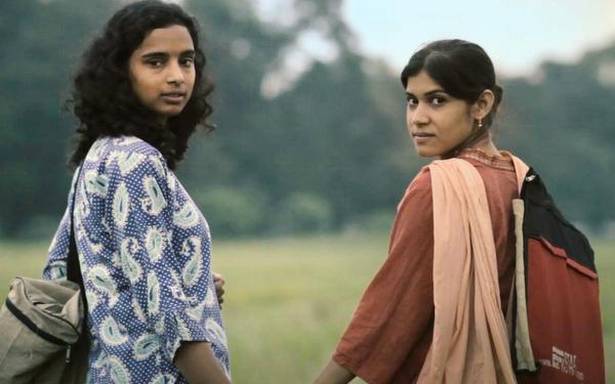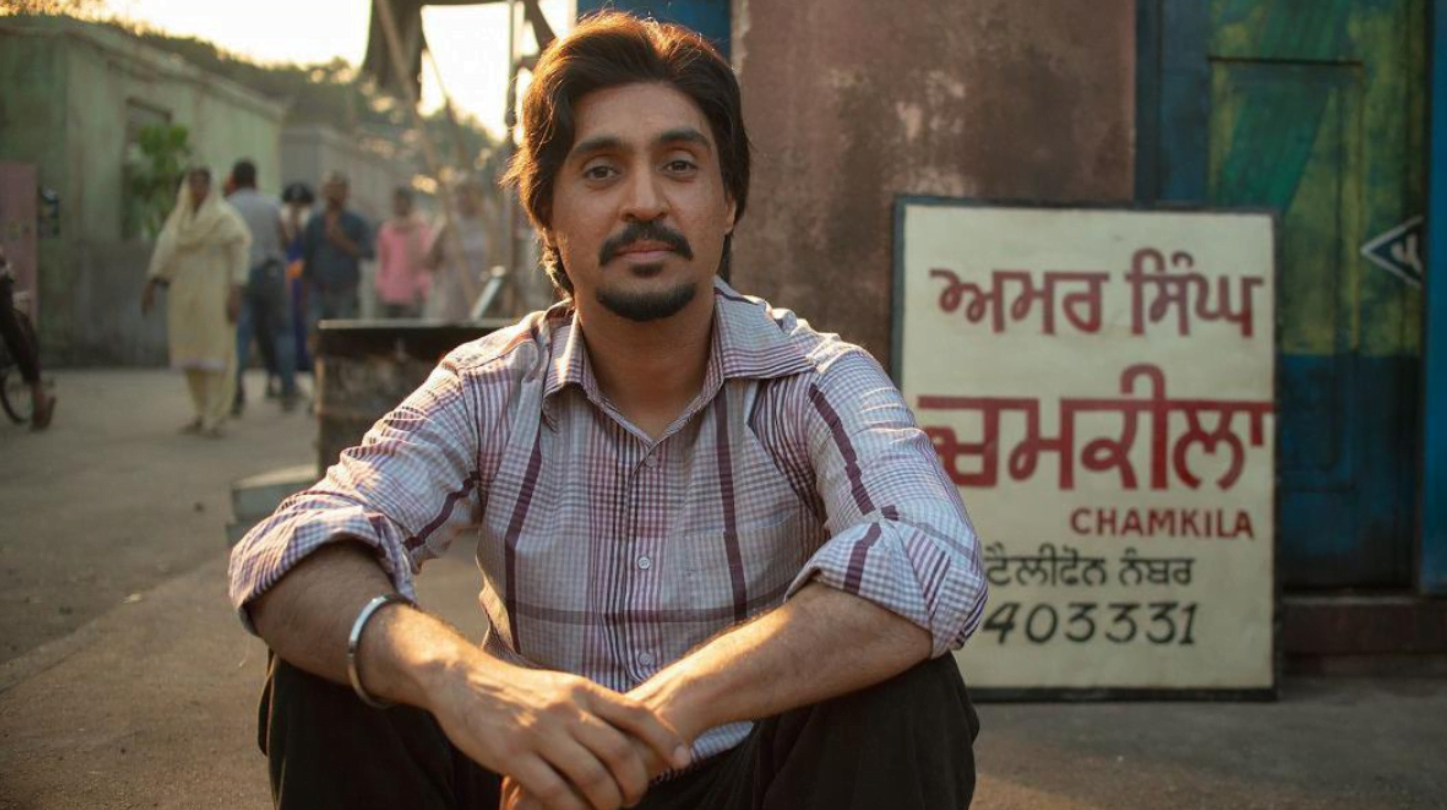“February 2011. Two girls, Swapna Sucheta committed suicide together by consuming pesticide in Nandigram, West Bengal. Their families refused to accept them. They were cremated as unclaimed bodies. Swapna left behind a 6-page suicide note titled ‘My life’
Only this much is the fact in this film. The rest … fiction”
Abar Jodi Ichchha Karo (If You Dare Desire) is a film by Debalina Majumdar, produced by Sappho for Equality. The film first premiered at 8th Dialogues: Calcutta International LGBT Film & Video Festival, 2014. The film is based on a real-life incident where 2 women in love with each other committed suicide together. Majumdar draws an alternative story where they survive and everything that unfolds from there.
Swapna and Sucheta try to commit suicide but destiny gives them another chance as their pesticide bottle falls in the river. They elope from their village to the big city Kolkata. Sucheta’s wedding ring saves them from hunger as she sells it off and they manage a meal in the big ‘City of Joy’.
Concerned strangers in the city keep asking these two girls where are they from, what they were doing and they feel compelled to hide their identity. For some, they have come from Bardhaman, for some others from Purulia or Bonagaon. But what were they hiding? That they were in love. With each other.
a story about two girls, who try to commit suicide but destiny gives them another chance
On a rain-drenched monsoon evening, a journalist named Rimjhim finds these two girls at Maidan, frightened and helpless; she takes them to her home. They introduce themselves as Bandana and Moyna from Purulia. But they have to run from there too.
While they roam around the city, destiny again chooses to give them another chance. Naren, an elderly mask and toy hawker meets with an accident in front of them. They take the injured Naren to his home. To Nafisa (Naren’s wife) and Bikash (their son-like caregiver), Swapna and Sucheta introduce themselves as Aparna and Kajali from Bongaon. They request work and Bikash assigns Swapna to sell masks on the streets.
With little promise of a new hope, they agree to it. Their survival together gets one more chance. Swapna/Aparna starts selling the masks on Kolkata streets on behalf of Naren. Soon, Bikash arranges a job for Sucheta/Kajali at a shopping mall. Soon they start believing in life again though Swapna still struggles with the dilemma between the liberation of their love and the guilt and shame for the same.
The film also provides a narrative in retrospection where Swapna’s voice-over reads from the original suicide note called ‘My life’. The timeline of fiction and fact merge at different occasions.
The slow-moving, longer shots of the city in the film move with ease. As if there was no hurry to get the reach a conclusion. The camera has a subjective gaze, moving along with the lives of these two girls. The filmmaker uses an interesting blunt colour scheme for the present and a vibrant colour scheme for portraying their ‘good old times’.
Swapna’s voiceover from the original suicide note speaks about their financial condition – “we were very poor. We did not even get one square meal a day.” Gender-sexuality based marginalizations and vulnerabilities often get protected by the shield of class and caste privileges. In this film, Swapna and Sucheta are located in multiple identities and marginalizations.
Also Read: Why We Need More Love Stories Like The ‘Other’ Love Story
The title of Abar Jodi Ichchha Karo (If You Dare desire) suggests that desire and choice are instances of being brave and courageous in this heteronormative society. These two girls refuse to succumb to the option of dying and choose to live together and when their underprivileged class location throws more adversities their way, the film restores our faith in the resilient nature of love.
All instances in the film which project/visiblize/accept their relationship are those scenes where both girls share screen space together, alone. All such instances are then followed by some slow montage of city people gazing around or locals or non-humans noticing something, throughout the film. This montage strongly suggests that even inside a closed room, they are ‘under surveillance’.
A very subtle instance of Swapna’s non-conforming gender expression has been sensitively placed in the film where she becomes uncomfortable while wearing a saree at Nafisa’s place.
Abar Jodi Ichchha Karo makes a reference to inter-faith marriage through Naren and Nafisa, again with an underprivileged class location. There is an additional interesting character, in this film, who in the end has been mentioned as the ‘Madman’, who appears on the screen with a non-functional computer keyboard, roaming around the street. He senses all complexities and shouts “next” with excitement!
Abar Jodi Ichchha Karo, as a fictional film on the lives of two girls, portrays the struggle of love like any other challenging love-story. But for these two girls in love with each-other, Abar Jodi Ichchha Karo becomes a story of the struggle for identity, choice, livability and visibility. Though only as fiction.
Swapna and Sucheta, at different occasions in the film, have been taking different couple names for themselves, which had actually happened – as the film ends with the slide:
“To the memory of
Aparna-Kajali, Bandana-Moyna, Swapna-Sucheta and many such lives who put themselves to death”
The fictional story ends with the note where they ‘come out’ to Bikash, who shows interest in marrying Sucheta, saying:
“…We love each other.”
“…We are not sisters.”
“…We can’t live without each other.”
“… But that doesn’t imply that we shall die.”
The very last shot of the film again takes them to Maidan. This time the sky is clear, they hold their hands and walk along. And they turn back, smiling with a promise of life.
Also Read: The Media Circus In The Bengaluru ‘Lesbian Marriage’ Story
Featured Image : The Hindu
Author’s Note : Recently, Abar Jodi Ichchha Karo was shown as the closing film at The International Association of Women in Radio & Television (IAWRT) Asian Women Film Festival, 2018 and it has been screened in many other festivals across the globe.




